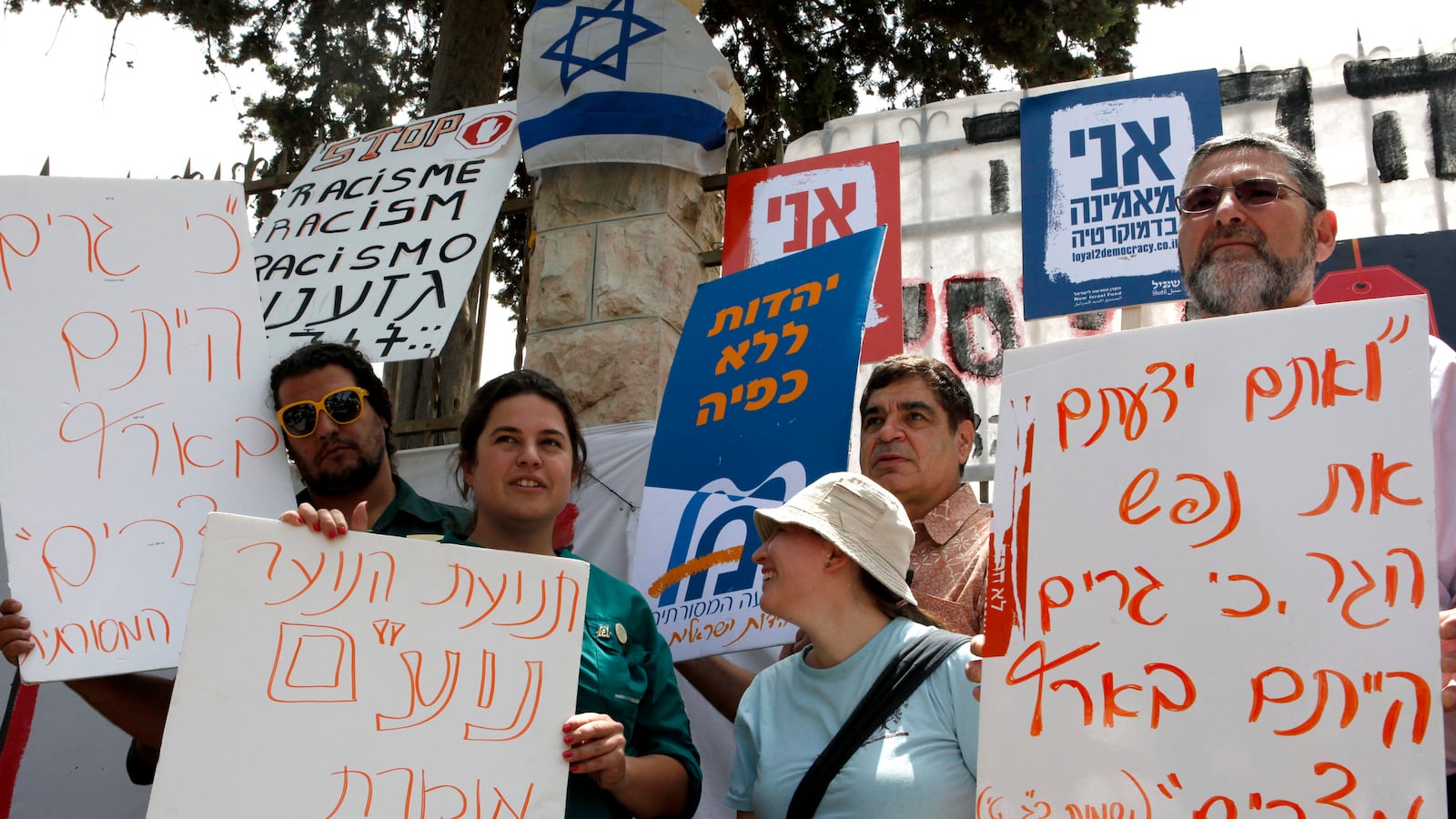When I saw the videos of the violence against African refugees last week in South Tel Aviv, my first thought was about how Israeli civil society would respond effectively.
But my second thought was about the row-house neighborhood I grew up in, in Philadelphia. Back in the ‘70s, “white flight” changed Jewish neighborhoods to African-American in the space of a year or two. Most Jews moved to the suburbs. Some, who couldn’t afford to move, were left behind.

It is often forgotten that the Kahane Chai didn’t begin as a terrorist organization in Israel. It started right here, as the “Jewish Defense League,” a grassroots movement against what it called anti-Semitism in the African-American community. As a teenager, I argued with a friend, whose family was still in the white-flight neighborhood of Logan, and who had joined the JDL after a few incidents of harassment. Full of liberal zeal, I told him that the JDL was racist and un-Jewish. He told me that Jews had to defend themselves, wherever and however they felt themselves under attack.
It wasn’t long before my neighborhood changed too. As the last white family on the block, after my little sister lost her candy money one too many times to kids with their own terrible set of problems, we finally moved to the suburbs.
And so, when I see some of the Israeli residents in south Tel Aviv spewing racist venom on video, I’m ashamed, concerned and determined. We at New Israel Fund must do everything possible to change the situation on the ground. We must act to protect the physical safety of the refugees, to mobilize leaders of the local community to come together to lower the temperature and find solutions, to assist the front-line organizations like Hotline for Migrant Workers and the African Refugee Development Center who work with refugees day in and day out, to organize peaceful response and help the refugees speak for themselves to the media, to the politicians—to Israel.
But we also need to beware the Israeli version of latte liberalism. We applaud the many leaders, including Prime Minister Netanyahu, who condemned the demagoguery, incitement and violence. We join the many who are horrified and disgusted by the incitement and racism coming from Eli Yishai and Miri Regev and Danny Danon. But as horrifying as the riots and the hateful speech has been, and as difficult as it is to see this happening in a country so many of whose founders were themselves refugees and "infiltrators," simple condemnation doesn’t do justice to the complexity of the situation in south Tel Aviv.
Put the blame where it belongs. For years, the Israeli government has failed to enact a coherent policy with regards to the thousands of refugees fleeing Africa in search of safety and a better life. For years, as neighborhoods in Tel Aviv and other cities have been transformed by this influx, the authorities have let problems fester. As in other developed countries, immigrants who work illegally, usually in low-wage jobs off the books, depress wages for poor Israelis as well. And although the crime rate for Africans is actually below the Israeli average, a walk around south Tel Aviv in the evening makes it easy to understand how veteran Israelis are finding it hard to cope with thousands of newcomers from very different cultures concentrated in one neighborhood.
Israel needs a sensible immigration policy that respects the human rights treaties it has signed and balances the ideal of the Jewish homeland with the Jewish obligation to help the stranger. And we’ll urge government and civil society together to work toward that long-term goal.
In the meantime, we must do, not just say. And we must do it without vilifying those who are themselves victims, while doing everything possible to stop the violence, stop the hatred, refuse to resort to inhumane deportations and prison camps, and build bridges for a shared society with people who are not our own but who often have nowhere else to go. The answers must be values-driven but more practical, and more sensitive to the complexities, than any slogan or easy moralizing can provide.






